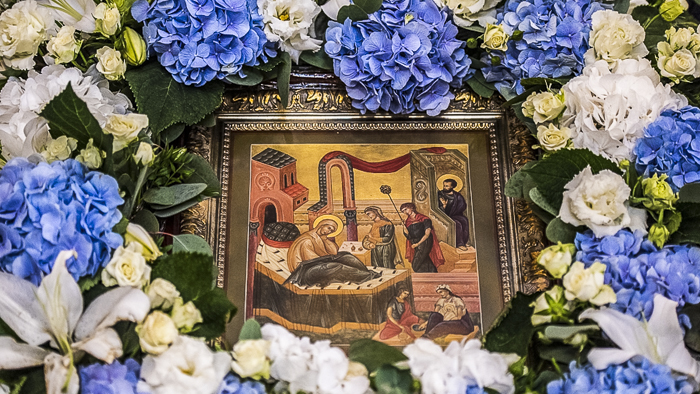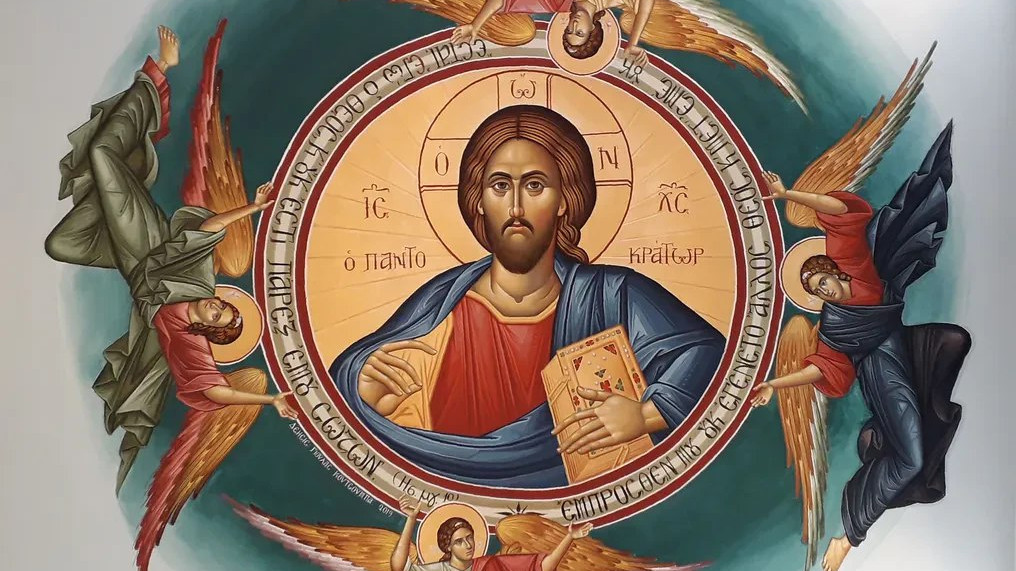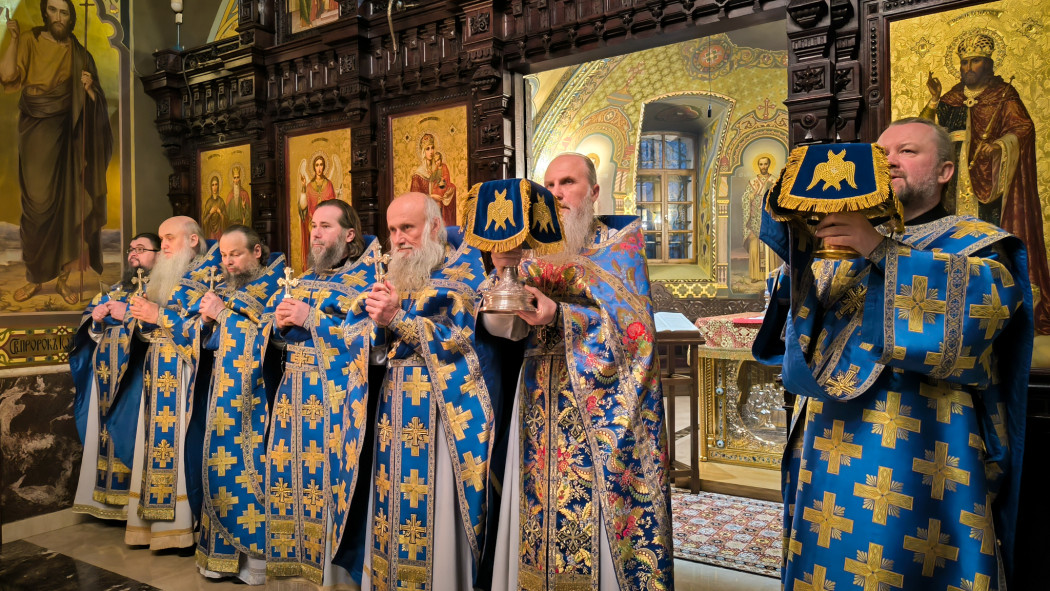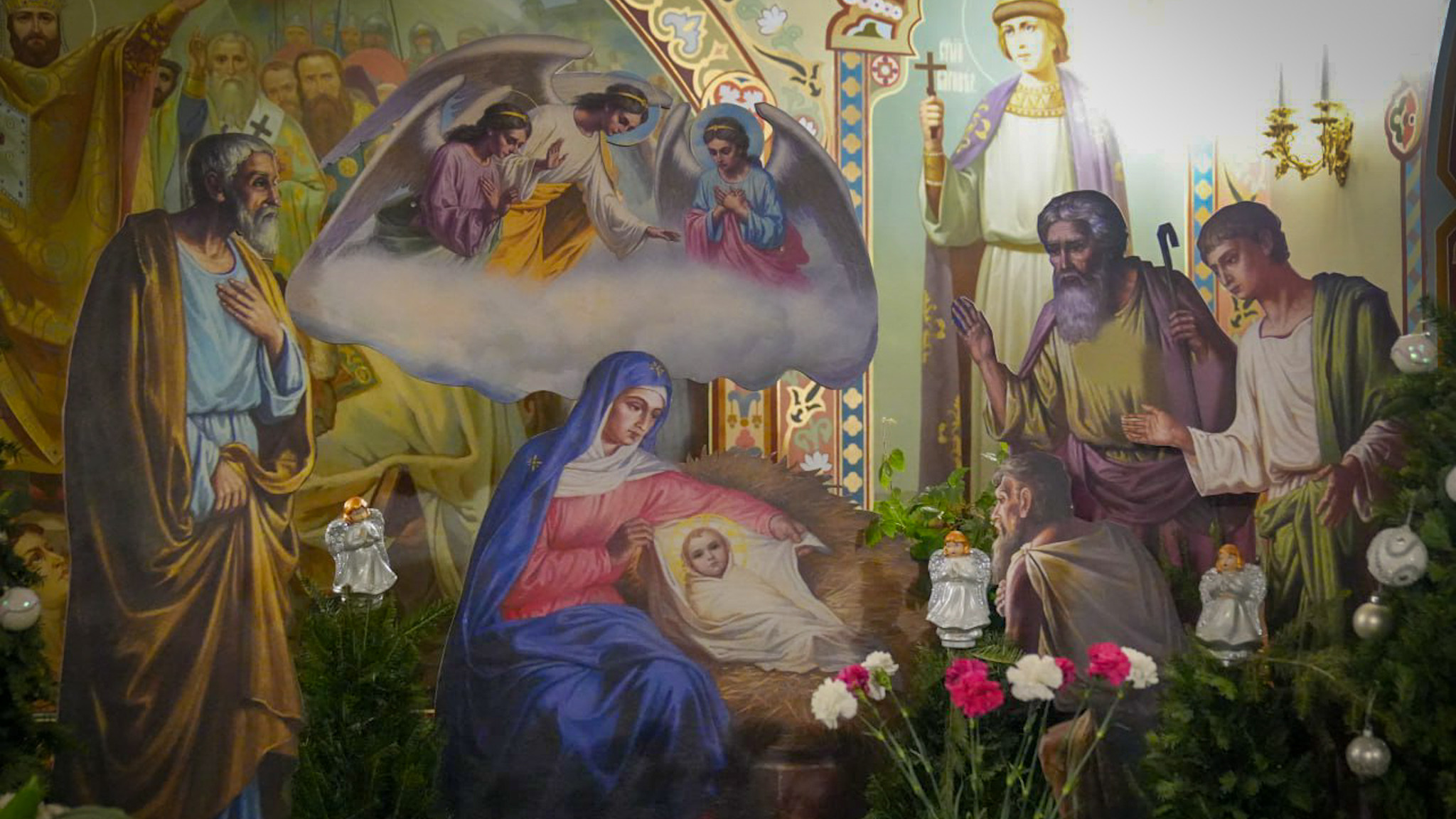Онлайн трансляция | 12 сентября
Название трансляции
- 12 сентября 2015 Название трансляции
- 12 сентября 2015 Название трансляции
- 12 сентября 2015 Название трансляции
- 12 сентября 2015 Название трансляции
- 12 сентября 2015 Название трансляции
- 12 сентября 2015 Название трансляции
- 12 сентября 2015 Название трансляции
- 12 сентября 2015 Название трансляции
Spirital treasure

“Full of grace from Her very Nativity…”
“Your Nativity, O Virgin Theotokos, has proclaimed joy to all the universe.”
Thus begins the troparion of today’s feast, celebrated this Sunday. And truly, brothers and sisters in Christ, of all the births known to the history of the world, none has brought such joy to humankind as the appearance of the Most Holy Virgin Mary. With Her birth a new horizon opens for the whole human race and a new history begins—the history of our salvation; or, as Saint John of Damascus says, “today is the beginning of our salvation.”
Her coming into the world was promised by God to our foreparents in Paradise, then proclaimed by the prophets; and for millennia, generation after generation awaited Her with love and reverent trembling as the One destined to bear the Messiah, the Savior of the world. Whole generations prayed for His incarnation from the Mother of God.
She was the chosen vessel into whom the Savior descended and took flesh. As is known, the Holy Virgin Mary is the blessed fruit of the long and tearful prayers of her elderly and righteous parents, Joachim and Anna. Both were of the royal line of David and lived in Nazareth of Galilee. In the center of Nazareth even today they show the place where the Most Holy Virgin Mary once lived with her parents. Indeed, in present-day Nazareth there stands the majestic Basilica of the Annunciation, the largest in the city. It has several levels; descend a few steps and in the midst you will see a railing, behind which the house of her parents, Joachim and Anna, has been preserved to this day.
Her aged parents also had another home in Jerusalem. There they spent their days in piety and purity, in fasting and good works; yet their life was marked by deep sorrow: alone and without heirs, they quietly bent toward life’s sunset. Still, neither old age nor Anna’s barrenness drove them to despair; they did not cease to implore God to grant them a child. Tradition, handed down to us by Saint John of Damascus, tells that they would often pray in these words:
“Adonai, Lord God of Hosts! You know the reproach of childlessness; You know the grief of barrenness. If You will mercifully look upon the lowliness of Your servants and give Your servants a child, we will offer it to You as a gift.”
And truly, God heard their humble prayer, and the barren, withered branch of David’s tree bore a wondrous fruit—the Infant Mary.
This Daughter of the aged Joachim and Anna was unlike all other daughters of men; she had no equal among them, though many at that time could not grasp her divine vocation in the world. For She was the Woman destined to crush the serpent’s head (cf. Genesis 3:15: “I will put enmity between you and the woman…”), the one promised by God to the first human beings; She was the Woman adorned with a crown of inexpressible virtues; the wondrous and grace-filled Virgin foretold by the Prophet Isaiah, who, remaining a Virgin, would bear Immanuel and abide both Virgin and Mother, becoming the virginal dwelling and All-Pure Mother of our Savior Jesus Christ (cf. Isaiah 7:14: “The virgin will conceive and give birth to a son…”).
When the devout Anna bore this blessed Daughter, their elderly home was filled with great joy and light, for bitter and long had been their sorrow and waiting. The name which the parents chose and gave their Infant was among the fairest in ancient Israel: the feminine name Miriam, Mariam, or Mary, meaning “pleasant,” “beautiful,” and also “Lady,” “Mistress”—Despoina, as the Greeks style her. All these meanings befit her fully, for the wondrous Infant Mary from her birth was endowed with every virtue and with gifts both of body and soul.
Full of grace from Her very Nativity, the Most Holy Mary the Virgin remained full of grace throughout Her earthly life.
The fullness of this divine gift, which filled her being and poured forth upon all creation, kept her from every sin. Thus, by the grace of God, sin touched neither her body nor her soul, and the dwelling-place of our Lord Jesus Christ remained pure—both bodily and spiritually.
And yet, Christian brothers, the Blessed Virgin Mary was born according to the natural laws of human birth, and therefore was not free from original sin; only her Divine Son was free from it. This state of personal holiness, overshadowed by the shadow of original sin passed on through her parents, continues in the Blessed Virgin until the Annunciation.
At the moment of the Annunciation, on 25 March/7 April, after the Blessed Virgin freely agrees to become the Mother of the Son of God, saying these words to the Angel: ‘Be it unto me according to thy word’ (Luke 1:38), even though She knew no man, She is completely cleansed of all consequences of original sin by the descent of the Holy Spirit upon her. From this moment, a new chapter begins for the Blessed Virgin: from this day forth, the Immaculate Virgin, completely pure in soul and body, becomes the sanctified dwelling place in which the human body of the Word of God is formed.
Редакция сайта www.lavra.ua
To signed up and receive Lavra’s emails and important news once a week.
You will be able to unsubscribe from emails at any time.






Spelling error report
The following text will be sent to our editors: